How to Cure PCOS
According to conventional medicine, PCOS (formally known as Polycystic Ovarian Syndrome) describes a health problem involving an excess production of androgens (male sex hormones) by the ovaries, resulting not only in the production of cysts on the ovaries but also in symptoms such as:- Unexplained weight gain
- Hirsutism (excess hair growth in different areas of the body)
- Mood changes
- Irregular or missed periods (generally due to lack of ovulation)
- Infertility
- Acne and/or oily skin
- Enlarged ovaries (which may cause pain)
- Thinning hair and/or male-pattern baldness
- Skin tags
- Patches of dark or thick skin under the breasts, armpits, or on the back of the neck
- Hoarse voice

Click here to schedule a health coaching call with us.
This condition affects between 5-15% of women worldwide and has been ever-present throughout history. In fact, reports of women with symptoms resembling those of PCOS date back as far as Ancient Greek times. However, although PCOS is a fairly common and age-old women’s problem, that doesn’t mean that the symptoms and even the root cause of the issue can’t be corrected.Conventional medicine aims to cover up the symptoms of PCOS and claims that there isn't a cure. Instead, women with PCOS are treated with birth control pills or medications designed to induce menstruation, prevent diabetes, reduce the effects of acne or other symptoms, and are encouraged to simply eat a healthy diet and exercise. Not only do these actions produce other problems for many women (birth control pills alone are a major culprit for weight gain, mood problems, and other issues), but they don’t ever correct the actual problem, meaning that women everywhere are living with untreated PCOS every day.
In the Unani system of medicine that is practiced in Central Asia (including Iran, India, and other nearby countries), PCOS is viewed very differently than it is in conventional western medicine. Specifically, PCOS is considered to be the result of phlegm “dominance” combined with an abnormal “coldness” of the liver that leads to this excess phlegm production. According to Unani physicians, there is a specific type of phlegm that gathers together near to the ovaries to produce the characteristic cysts seen in PCOS.
In Ayurveda, PCOS is seen as a kapha disorder. According to this Indian system of medicine, PCOS can happen when the Artava dhatu (the female reproductive tissues) are blocked by excess kapha, thus preventing the natural, balanced flow of the female reproductive fluids known as Artava Vaha srota. Thus, correction of the overproduction of kapha and removal of the blockage is what’s necessary to treat the symptoms of PCOS.
Traditional Chinese Medicine views PCOS from a few different perspectives. Primarily, though, TCM perceives this disorder to be the result of Qi and Yang deficiencies as well as excess phlegm accumulation (the same as in the Unani system) and blood stasis. Kidney Qi and Yang deficiency, Spleen Qi deficiency, and Liver Qi Stagnation are often implicated in the development of PCOS and PCOS symptoms. Treatment in TCM as well is based on the idea that if these imbalances can be corrected, so can the illness and the woman’s reproductive and general well-being can be restored.
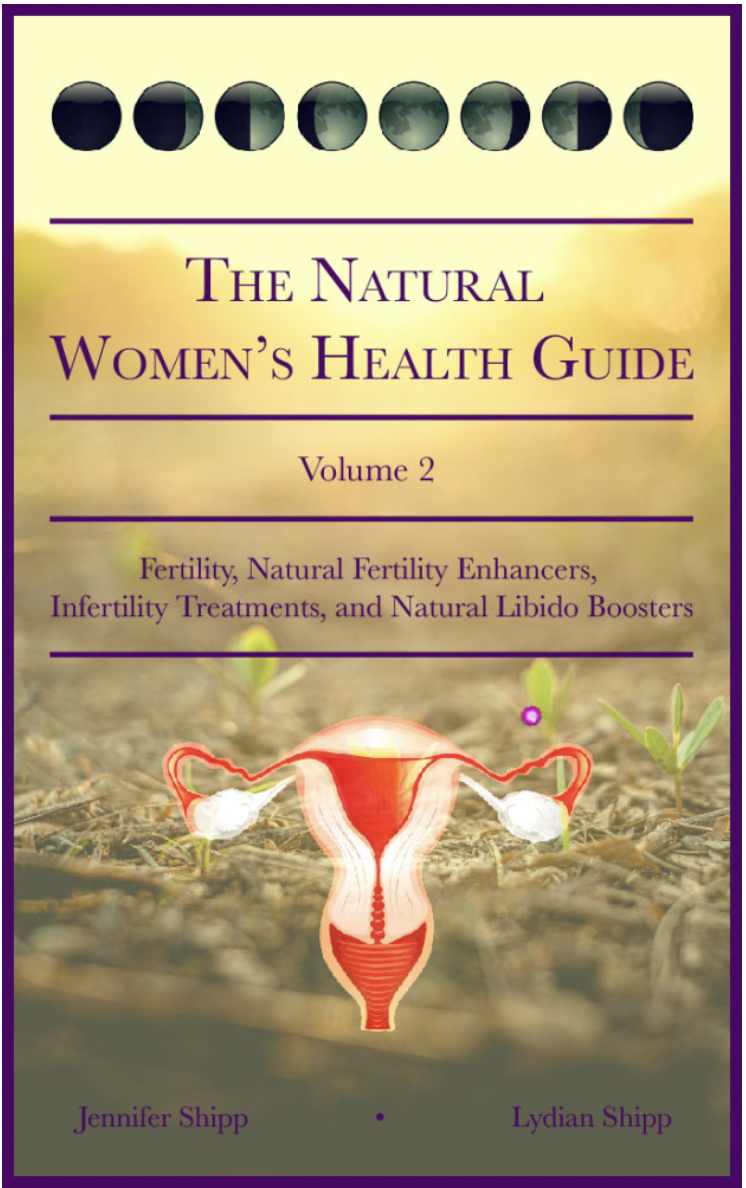
Click here to buy The Natural Women's Health Guide, Volume 2 - Fertility, Natural Fertility Enhancers, Infertility Treatments, and Natural Libido Boosters.
The Symptoms and Causes of Polycystic Ovarian Syndrome
Ovarian Cysts
Multiple ovarian cysts are an essential characteristic of polycystic ovarian syndrome. The ovaries are responsible for the production of some female hormones as well as for releasing an egg each month (which leads to either menstruation or fertilization/pregnancy). When the ovaries aren’t able to do their normal job due to ovarian cysts, hormonal imbalances can lead to some of the symptoms below in addition to problems with fertility. Since many women with PCOS don’t release an egg each month, they therefore have trouble with getting pregnant. And, even if a pregnancy occurs, hormonal imbalances may lead to problems with staying pregnant for a lot of women with this disorder.Although the idea of ovarian cysts sounds terrifying, it’s important for women with PCOS to remember that all women’s ovaries develop cysts regularly. When ovulation occurs, the ovaries naturally and automatically develop a cyst in response to the release of an egg. These cysts are termed “functional cysts”. In polycystic ovarian syndrome, hormonal irregularities cause the development of more cysts that are not functional, and therefore, it’s necessary to find solutions for dissolving these cysts and restoring hormonal balance.
Menstrual Irregularities and PCOS Fertility/Infertility
Amenorrhea is defined as the complete absence of a menstrual cycle in a woman who is not pregnant and has not experienced (nor is in the age group to have gone through) menopause. Oligomenorrhea is where a woman has no more than 6-8 periods per year (often irregular), with all of the other periods being missed completely. Other general menstrual irregularities, such as frequently late/early periods, excessively long or short menstruation, painful menstruation, spotting in between periods, or occasionally missed periods not quite meeting the definition of oligomenorrhea are all symptoms sometimes associated with PCOS.Below are some treatments that can help encourage ovulation and bring about a missed or late period. According to many different systems of medicine (including the conventional western model, actually, to an extent), one of the primary treatments for PCOS involves using plants or other medicines that spur the onset of menstruation when it’s due in order to try and bring the body back to a regular, balanced rhythm. In the Unani system, a woman who misses her period or goes for a while without having one is considered likely to have some kind of build up in her body that can cause some of the other PCOS symptoms (such as weight gain or hair growth in undesirable places), and that instigating menstruation when possible can relieve this quickly. Many PCOS herbal treatments are geared toward encouraging menstruation for this reason.
Hirsutism (PCOS Facial Hair and Hair Growth in Other Areas)
Hirsutism is (unfortunately) a relatively common symptom of PCOS that involves the growth of hair in areas where it didn’t grow thickly before (such as on the face, chest, or back), or a thickening of hair in areas where it does grow already. Although it doesn’t necessarily affect health directly, hirsutism can be a frustrating and upsetting symptom of PCOS for many women. Thankfully, there are some treatments that can help prevent and/or reverse undesirable hair growth. Because most women who develop hirsutism as a result of PCOS develop it as a result of underlying hormonal imbalances, it’s important to correct these imbalances from the bottom up in order to truly reverse this symptom.Weight Gain and Insulin Resistance
Though different on the surface, weight gain and insulin resistance go hand-in-hand when it comes to polycystic ovarian syndrome.Insulin resistance isn’t only found in diabetics, but can also be found in other disorders such as PCOS where diabetes may or may not be a concurrent illness. With insulin resistance, some cells of your body aren’t able to respond effectively to the insulin (a hormone) that the pancreas produces. When a cell doesn’t respond to insulin, this means that it doesn’t take up glucose from the food you’ve eaten (meaning that the cell cannot produce energy). In response to this abnormality, the pancreas produces more insulin in an attempt to reduce the glucose saturation in your body. At the same time, this excess insulin production also leads to increased androgen production.
Insulin resistance tends to lead to a slower metabolic rate. Slower metabolism means that your body isn’t burning fat or managing fat storage as efficiently as it otherwise might. Additionally, the increased androgen production that follows the release of extra insulin from the pancreas can also lead to weight gain similar to that seen in men (since androgen is predominantly a male hormone). Excess androgen can also lead to problems such as acne, hirsutism, and irritability, among other similar PCOS symptoms.
Click here to learn more and subscribe to the Living Database now.
Pain, Acne, Depression/Anxiety/Mood Problems, and More
For women with PCOS, acne and mood problems in particular are generally associated with hormonal imbalances of some kind. Thus, working toward the correction of hormone imbalances will likely help improve these symptoms as well. However, there are still some remedies that may provide additional relief in the meantime (most of the treatments that we discuss in our book, The Natural Women's Health Guide, Volume 2, will not only help treat the symptoms of PCOS, but will also help treat the underlying issues causing the disease in the first place).Women with PCOS may experience different kinds of pain related to their disorder. Some women have pelvic pain (though this is somewhat less common), back pain, sacral pain, or sometimes painful menstruation. Below are some specific remedies that may work to treat these kinds of pain as well.
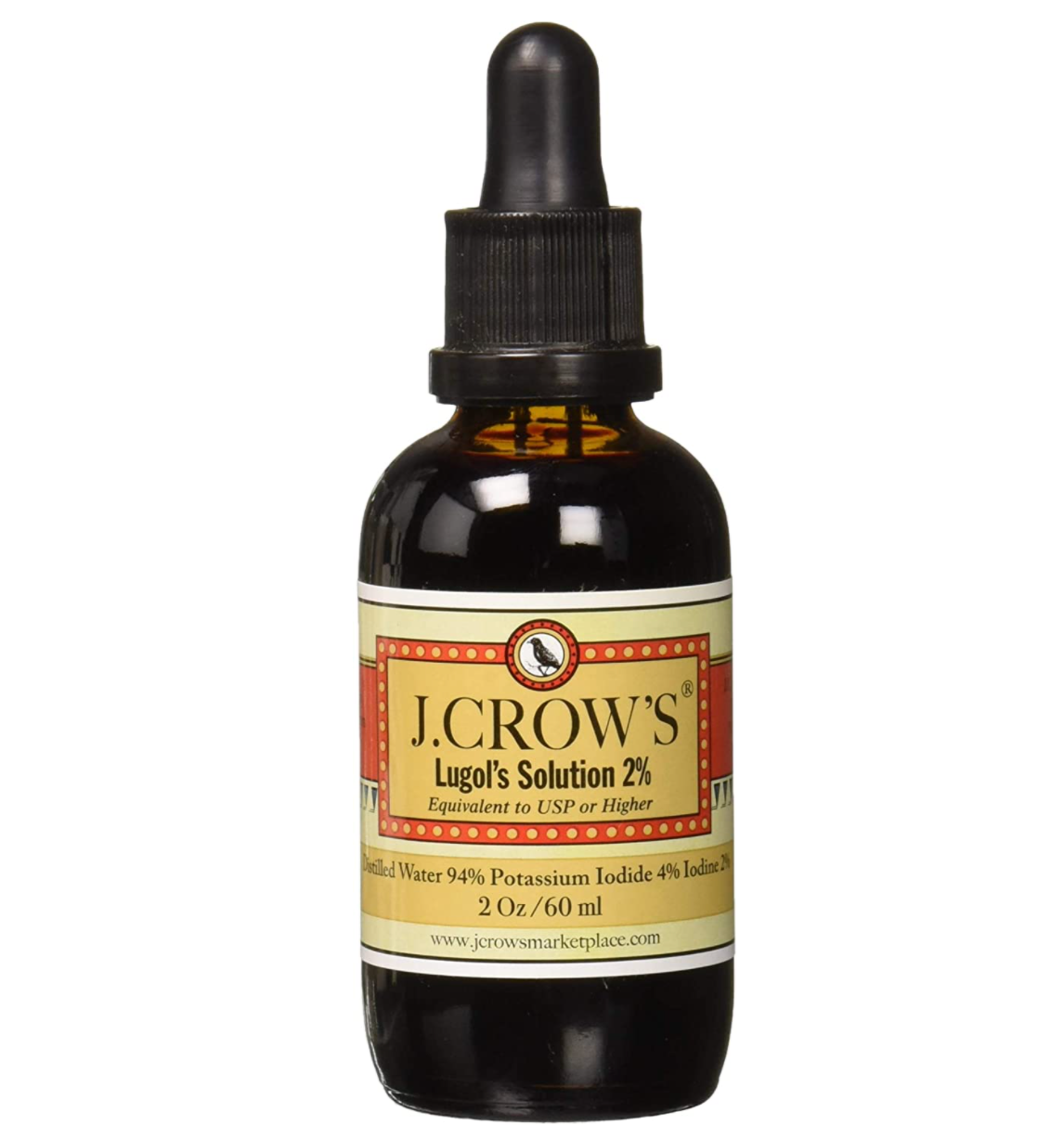
Click here to buy Lugol's Iodine 2%.
PCOS Cure / Endometriosis Cure
The cure for PCOS and endometriosis is a nutrient known as Lugol's iodine. Lugol's contains both potassium iodide and molecular iodine. These two iodine configurations are able to feed both the thyroid gland (to control weight gain and weight loss) as well as the reproductive organs to naturally balance reproductive hormones. A number of doctors have prescribed Lugol's iodine as a cure for endometriosis and PCOS with great success because this is the natural substance that the body is craving. Iodine deficiency causes the reproductive organs and hormones to become "deranged". Indeed, Lugol's is the most important natural cure for breast cancer, cervical cancer, and all reproductive organ cancers. Read more about the use of Lugol's iodine as a cure for breast cancer, uterine cancer, ovarian cancer, cervical cancer and all reproductive organ cancers here. Read about how to do a douche with Lugol's iodine to cure vaginal, uterine, and fallopian tube infections here. Note that the Lugol's douche + castor oil protocol outlined at this link can also be used to cure endometriosis and PCOS.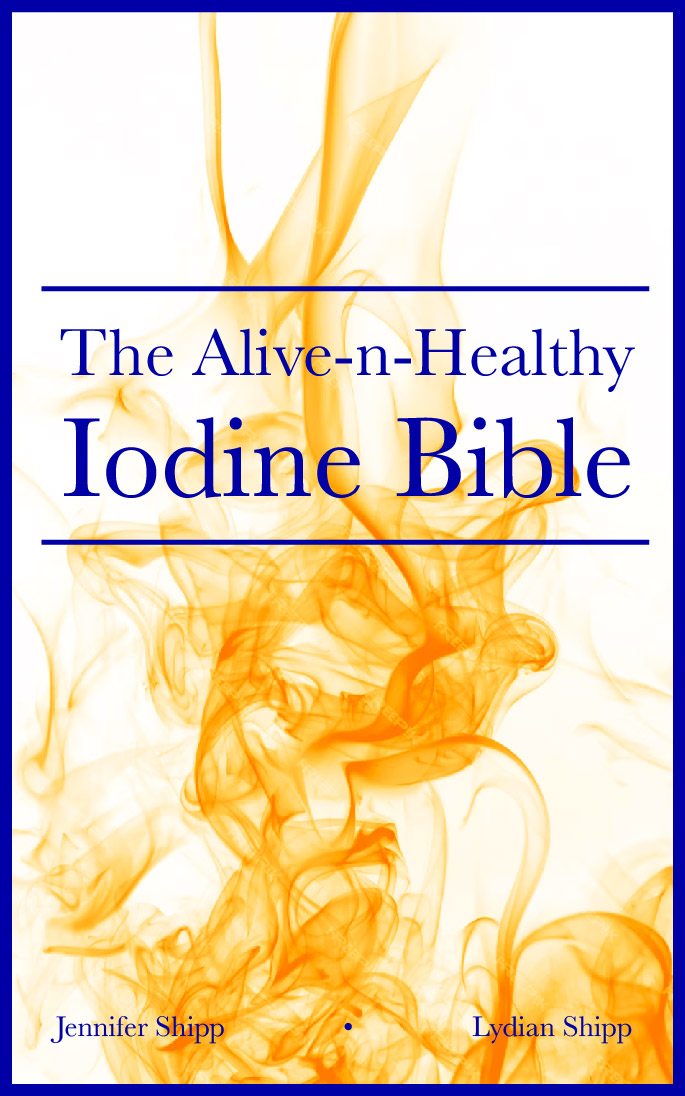
Click here to buy Iodine Bible.
IMPORTANT UPDATE 2025: In addition to working with Lugol's iodine for PCOS and endometriosis, also consider working with the herb known as Garcinia kola. Garcinia kola was one of the main ingredients in Coca Cola when it was first created. At this time, Coca Cola was a medicine and not just a sugary soft-drink. Garcinia kola has the ability to gently rebalance hormones and it makes a dramatic difference, when combined with Lugol's Iodine therapy, in being able to cure endometriosis and PCOS naturally.
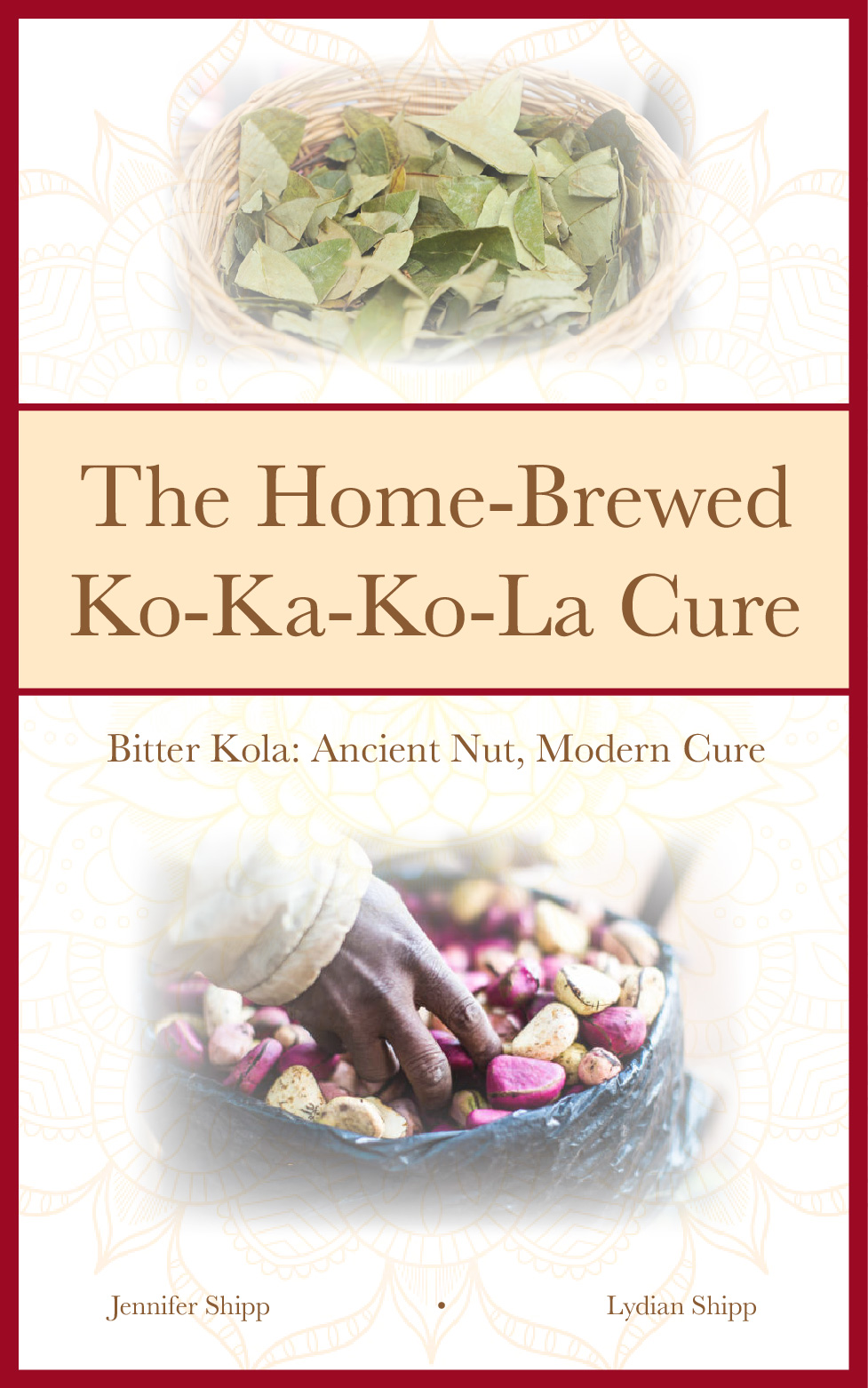
Click here to buy The Ko-Ka-Ko-La Cure.
Resources:

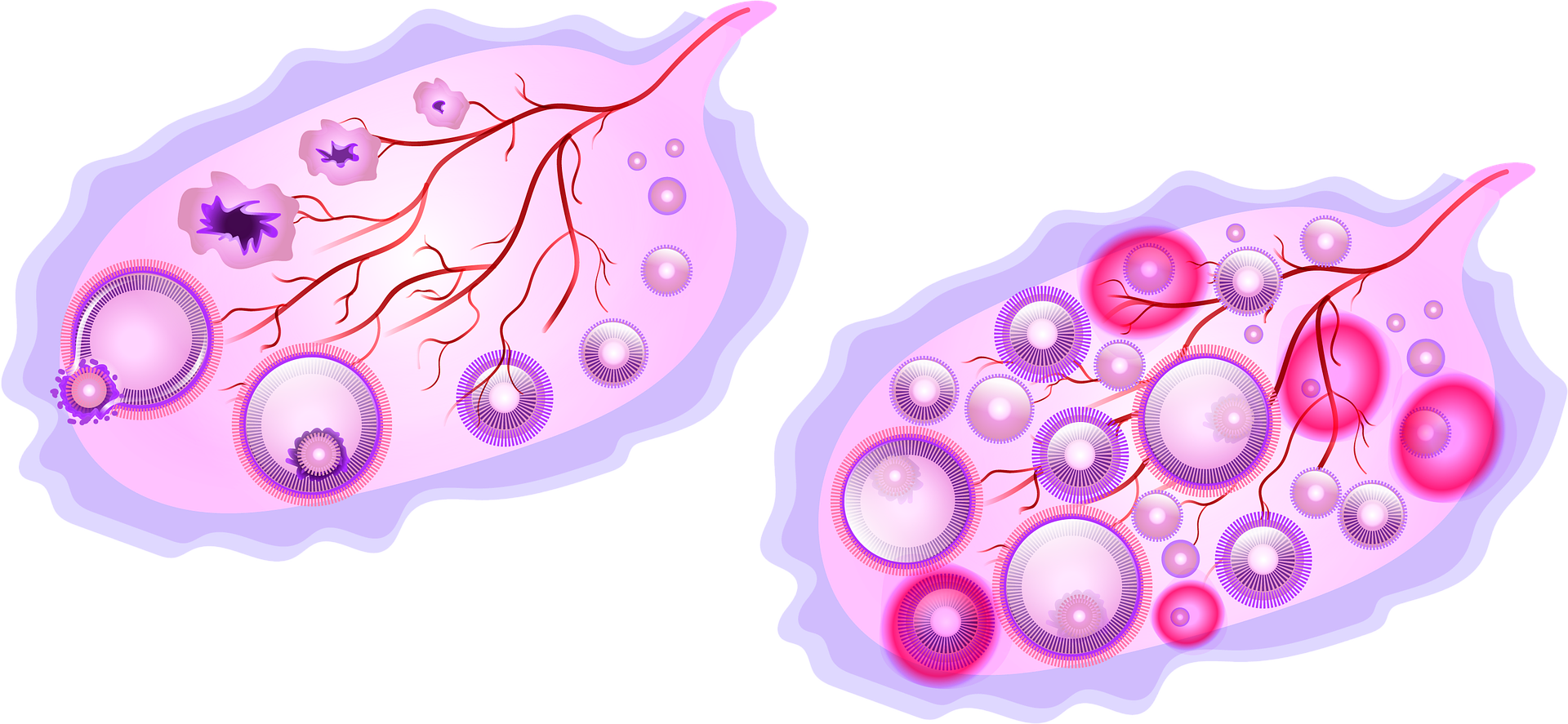 An illustration of polycystic ovaries.
An illustration of polycystic ovaries.







